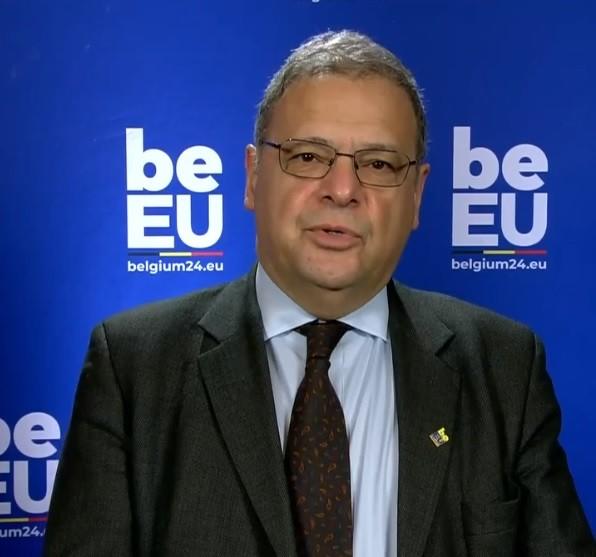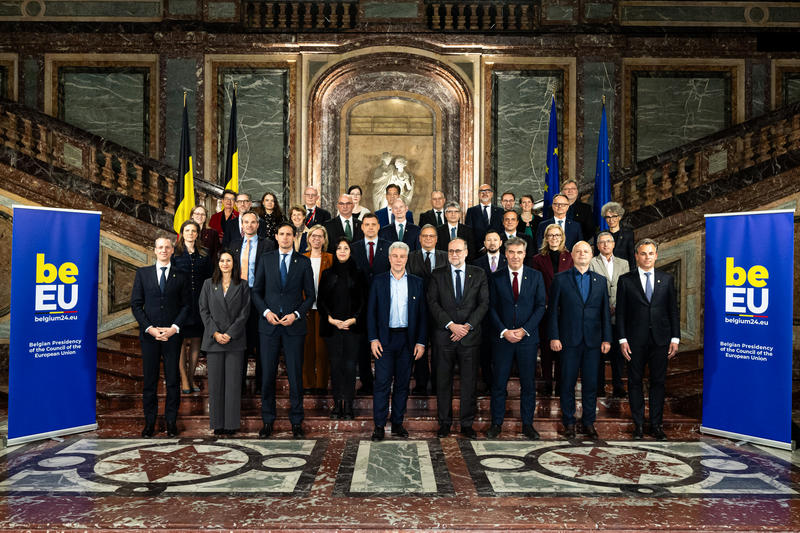Minister Popov participates in two-day informal meeting of EU Environment Ministers
15 Jan, 2024 | 17:12
The first day of the two-day informal meeting of environment ministers, held in Brussels under the Belgian Presidency of the Council of the EU, started with a discussion on adaptation and sustainability. A common understanding was reached on the key role of the assessment and analysis of climate risks for identifying further necessary measures and actions. This will help increase the Union's preparedness and strengthen its resilience to adverse climate events.
In his address, Environment and Water Minister Julian Popov highlighted the importance of research on the impact of climate change on people and ecosystems. He underlined how vital it is to consider this key aspect in all policies, as well as the need to adapt and build resilience of critical infrastructure, agriculture, etc. Minister Popov also stressed that it is necessary to tackle at the European level the issue of water sustainability and its strategic management in the context of climate change. According to Minister Popov, special attention is to be paid to the Union's Eastern border, the Black Sea, as the largest inland body of water on the planet, which is already experiencing the effects of global warming.
The discussions continued with an exchange of views on the different aspects of the Green Deal to be developed during the next legislative cycle. Minister Popov said that in the light of the decision taken at COP28 to phase out fossil fuels, the EU should consider adopting an ambitious greenhouse gas emissions reduction target for 2040. He pointed out that the world belongs to new, much more efficient technologies and setting a target of at least 90% at European level is the only way to ensure that these technologies remain and are developed in Europe. He highlighted that the adoption of such a target would not only contribute to tackling the climate crisis, but would also increase the competitiveness of the European economy and lead to industry modernization.
The ministers paid special attention to the socio-economic impact of the green transition. They looked at the current European framework for a just transition and discussed what further initiatives, investments, coordination mechanisms, or instruments are needed. Achieving a socially equitable green transformation that meets the needs of the most vulnerable members of society was confirmed as a guiding principle in building on European policies.
The ministerial meeting will continue tomorrow with a debate on the circular economy and sustainable resource management and their contribution to tackling the challenges of climate change, biodiversity loss, and pollution.

